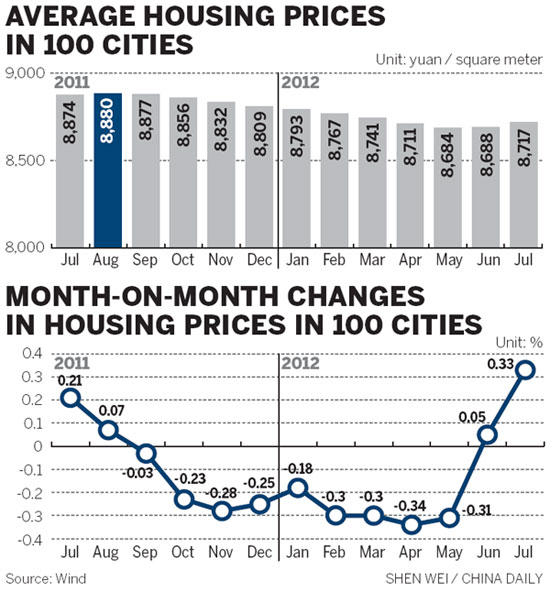
|
A seaman cleans a tail light on his boat near the coast in Qingdao, Shandong province. Home sales and prices will continue to go up in China over the next five years, supported by increasing fundamental demand, according a research report. Yu Fangping / For China Daily |
Housing sales and prices are expected to continue going up in China in the next five years, supported by increasing fundamental demand, although the pace of the price rises could be dampened by government curbs, said a report by the China Index Academy released on Thursday.
Residential prices are expected to increase 5.5 percent annually to reach an average of 6,428 yuan ($1,010) per square meter nationwide by 2016.
Residential sales, new construction areas, as well as new completion areas are expected to reach 1.4 billion, 2.76 billion and 1.33 billion square meters in 2016, representing a compound growth of 8.3 percent, 14.5 percent and 7.8 percent, respectively, for the period.
Huang Yu, executive vice-president at the academy, said the property market on the mainland will undergo a transition from rapid growth to steady growth.
"Home demand is directly driven by the steady progress of urbanization on the mainland," Huang said at a media briefing in Hong Kong on Thursday.
"The urban population between the ages of 20 and 34 will increase by 3.76 million every year, which will bring about inelastic demand to the market with those first-time homebuyers," she said.
Huang said that her study showed that home purchases driven by fundamental demand constituted 64 percent of the total home sales in first-tier cities last year, up 3 percentage points from 61 percent in 2009.
However, Du Jinsong, head of China property research with Credit Suisse (Hong Kong) Ltd, disagreed with the view that the mainland property market had basically become a fundamentally demand-driven market.
"It's a contradictory model (the one stated in the China Index Academy report)," Du said. "If home prices continue to rise, while primary fundamental demand comes from people who have migrated from the countryside to cities, according to the research, how can these people possibly afford a home even if their current income increases by 20 percent a year?"
In a July report, Credit Suisse said that "housing prices are a function of money supply", but it warned that the current property price increase was "not sustainable" given that property prices had outgrown household income significantly during the past five years - the same as in smaller cities.
But the bank said that with the current round of credit loosening, home prices are likely to surge again on the mainland until the central government comes out with tighter housing policies.
According to the academy study, the average home price in 100 cities it monitored had increased by 0.33 percent month-on-month in July, after the rebound registered in the previous month.
Home prices in 10 cities, including Beijing and Shanghai, rose 0.27 percent on average month-on-month in July, the study showed. It, nevertheless, noted that prices in these hot spot areas had declined in the past seven consecutive months year-on-year.
"Cities and regional centers bear greater risks of (facing) new policies, and we expect local governments to start stabilizing average selling prices," said a research note from CCB International Securities Ltd earlier this week.
"In contrast with first-tier and key cities, lower-tier cities still have room for local governments to introduce supportive policies for end users, which in turn will raise sales volume, encouraging banks to offer discounts to first-time homebuyers," Edison Bian from the bank wrote in the note.

(China Daily 08/03/2012 page13)







